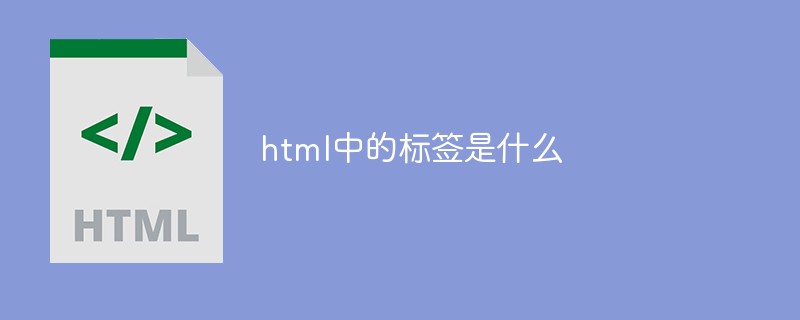Home >Web Front-end >Front-end Q&A >what are tags in html
what are tags in html
- 藏色散人Original
- 2021-05-20 11:44:045600browse
The tag in html refers to the hypertext markup language tag, which is the most basic unit in the HTML language and the most important component of HTML. The case of the HTML tag is irrelevant.

The operating environment of this article: Windows 7 system, HTML5 version, DELL G3 computer
Hypertext Markup Language (foreign language abbreviation: HTML) tags are usually Known as HTML tags, HTML tags are the most basic unit in the HTML language. HTML tags are the most important component of HTML (an application under the Standard Universal Markup Language).
The case of HTML tags is irrelevant. For example, "body"
and have the same meaning. It is recommended to use lowercase.The tag is divided into two parts: the opening tag and the closing tag .
Extended information
The main features are as follows:
1. Simplicity: The hypertext markup language version upgrade adopts a superset method, making it more flexible and convenient.
2. Scalability: The wide application of hypertext markup language has brought about requirements for enhanced functions and added identifiers. Hypertext markup language adopts the method of subclass elements to ensure system expansion.
3. Platform independence: Although personal computers are popular, there are many people using other machines such as MAC. Hypertext Markup Language can be used on a wide range of platforms. This is another reason why the World Wide Web (WWW) is popular. reason.
3. Universality: HTML is the universal language of the Internet, a simple and universal all-purpose markup language. It allows web page producers to create complex pages that combine text and images, and these pages can be viewed by anyone else on the Internet, regardless of the type of computer or browser used.
Recommended learning tutorials: html video tutorial, css video tutorial
The above is the detailed content of what are tags in html. For more information, please follow other related articles on the PHP Chinese website!

